Heatwaves leave London's trees under extreme stress
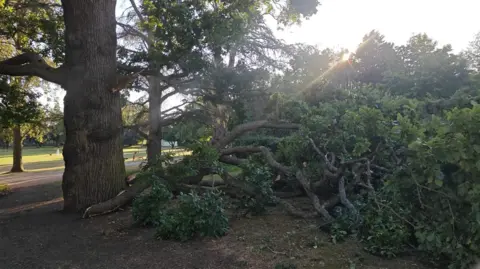 Harrow Council
Harrow CouncilLondon has one of the largest urban forests in the world with over 8 million trees on private and public land. But this summer they are under extreme stress due to three heatwaves and a lack of rain.
A council in London has now warned people not to sit or congregate under large trees after a rise in the number of falling branches.
Harrow Council says there has been an increase of sudden branch drop syndrome, which it says has been made worse by the heatwaves.
And experts at the charity Trees for Cities are expecting to see an increase in trees dying or dropping branches as the climate warms.
So what can be done to mitigate this?
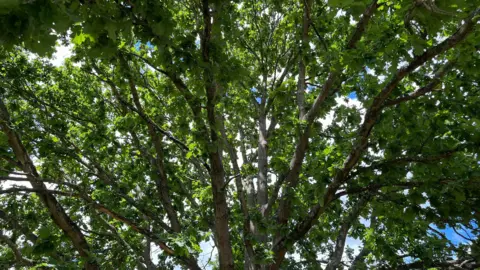
With London expecting to see higher temperatures in the future due to a warming climate, trees are seen as being hugely important for reducing carbon and pollution, while also cooling areas.
The mayor of London has vowed to increase the city's tree canopy by 10% by 2050 to combat higher temperatures.
But conditions are getting harder for certain native species to thrive.
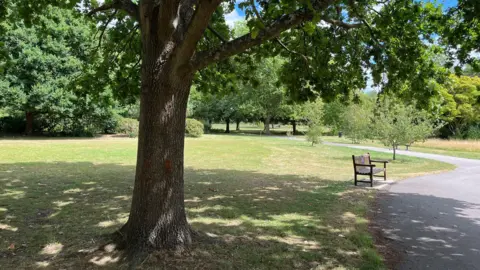
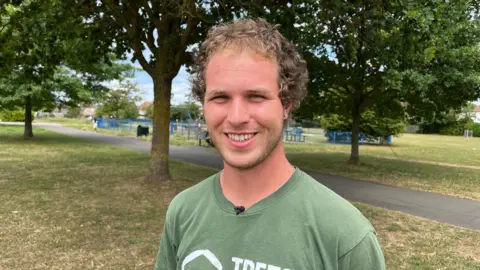
Trees for Cities are a charity that plant and look after trees. We recently joined a team watering young trees in Greenford, west London.
Seb Herst is senior urban forest coordinator and says tree maintenance will become increasingly key.
"Obviously we don't want to give up on all of the native trees that we have in the UK. They support a lot of the local wildlife and species from other places won't support the same wildlife.
"So it's a mix of making sure the native species we have are cared for, but also picking the same species except one that's more adapted to the changing climate. So for example taking an oak from southern France that can cope with the climate we are predicting here."
He adds that "maintenance is also super important. London has very small tree pits for example, maybe we could have bigger tree pits? We have condensed soils. How can we aerate soil more so it can contain moisture and severe downpours?
"Now we are seeing the climate shift so we are going to have to change how we look after trees as well."
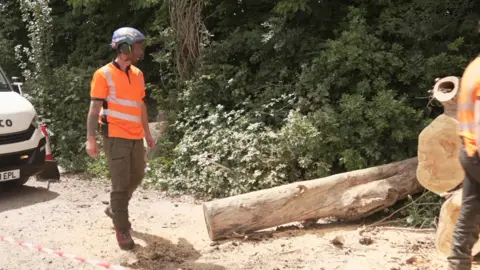
Mete Coban is the deputy mayor for environment for London. He says climate change is affecting London now.
"We know the heatwaves are having a huge impact on species and trees.
"What we need to do is continue to roll out more trees so we can be more resilient to extreme heat, and the impacts of climate change.
"But also what we need to do is get the right types of trees and species and make sure we have the right infrastructure in place to protect our trees because ultimately we are going to see more and more hotter temperatures across our city. "
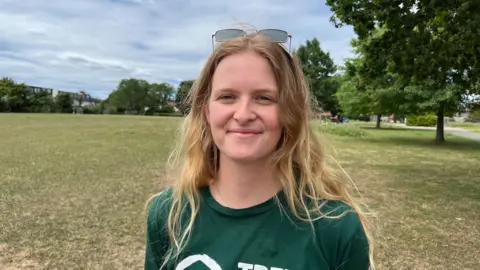
Georgie Power is senior urban forest coordinator at the charity Trees for Cities.
She was taking part in the work in Greenford, watering trees and adding bark mulch around the roots to help keep the moisture in.
She believes that with rising temperatures we can expect to see more trees under stress.
"What we think sudden branch drop syndrome is, is when trees are put under extreme heat and drought, it's something similar to self-amputation. So the trees aren't getting enough water into the branches and they're cutting off branches to preserve the rest of the tree.
"We can see from this summer - April, May, June - they have been absolutely roasting this summer. All the trees have been under huge amounts of pressure."
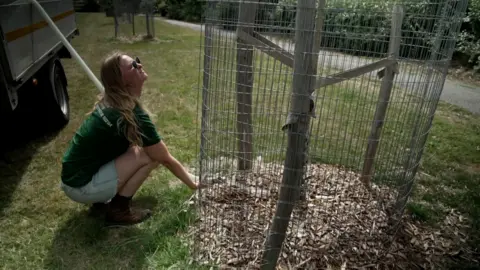
Georgie adds: "We know with climate change we are going to get more increases in temperature overall, because of that we are going to get more of things like trees dying but also the sudden branch drop syndrome as well.
"We do have to pick different species already with climate change. A good example is with the Alder tree. At the moment, Trees for Cities is planting a lot more Italian Alder because it is more climate resilient and more resilient to droughts and flooding as opposed to the common Alder.
"So we are already picking trees that are going to be better suited to our climate in the very near future."
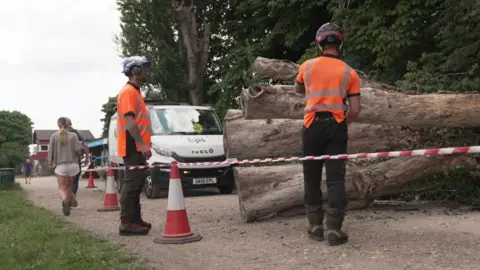
Listen to the best of BBC Radio London on Sounds and follow BBC London on Facebook, X and Instagram. Send your story ideas to [email protected]
